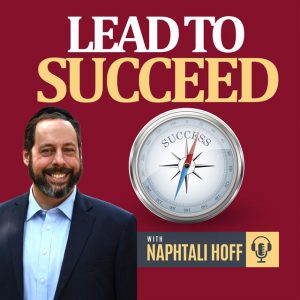
Starting a podcast is quite the experience and something that I had no intent of doing just a short time ago. Sure, I was aware of the wide range of podcasts and how some podcasters had achieved great things and developed wide followings. But with everything else that I had going on, and with zero personal experience with podcasting (as a listener, let alone as a host), I simply had no plans of adding this to my bucket list.
My perspective changed when I published my first book, Becoming the New Boss. I had approached the writing / publishing process a bit naively, thinking that if I produced a great book (which my mother says I did), the interest would simply follow. All I would need to do, I thought, was get it done, share it with my networks and do some advertising, and voila! I would have the next NYT bestseller (or at least an honorable mention).
But after speaking with my publisher (a small, growing Left Coast mom and pop, not a plush, big-time Lexington Avenue outfit) and other authors, I learned quickly that I would need to become the CPO (Chief Publicity Officer) of my book, in addition to everything else that needed to get done.
Then, I attended an author conference in Chicago in the summer. Presenter after presenter hammered home the message that, despite whatever outside help you might get, you still need to play a major role in pushing your book. (They shared that even the “big time” publishers, those that offer advances and publicists, typically expect authors to much of the promotional heavy lifting.) Action items in my growing to-do list now included regular blogging, using social media adroitly, doing book signings, getting speaking gigs, and gaining exposure through guest blogging and guesting on podcasts.
Finally, one of the last speakers (a former Chicago TV personality) talked about podcasting and why it’s so important for getting your name and message out there. He also shared that it’s relatively easy to do. That’s when I decided that I needed to take this podcasting thing a bit more seriously.
I started by asking to guest on existing podcasts. I figured that this would give me a great way to learn more about the process. Guesting also gave me access to new people who I otherwise would have difficulty connecting with. Most important, of course, was the fact that it would give me a free platform to start talking about my book. I reached out to people who I knew hosted podcasts. After recording (I first needed to show that I could be a desirable guest), I asked them to introduce me to other podcasters, which they happily did. Those warm intros worked wonders. I also searched for leading podcasters and connected with as many as I could on LinkedIn. Once connected, I pitched my book and asked for a chance to chat. Many more agreed.
Completed podcasts include:
Education leadership
General leadership
(A number of additional podcasts have been recorded and await publishing, while others are scheduled to be recorded over the next few months.)
When I was done recording, I asked my hosts if I could share a prepared series of questions for them to answer. The questions covered everything from why they podcasted to what hardware and software they recommended. All of the hosts happily agreed to answer the questions. (Warning to PC users: Macs have all of the advantages!)
I implemented whatever I learned. I worked to clarify the podcast’s purpose and a set of primary goals. The next steps were to decide on a name, develop cover art, prepare an intro/outro script and other text, develop a podcast sequence and a list of questions, and settle on a hosting site. Of course, I also needed to purchase and/or download the hardware and software needed to get things going. The last part was to secure an editor. I chose one who was recommended by two of my hosts.
As you can see, this was not a quick, easy process. It took many weeks and lots of focus. There was also much work involved in getting guests, writing scripts, doing the interviews, writing show notes, preparing guests pictures, uploading everything, etc. But if the success enjoyed by many podcasters can serve as any indication, my hope is that it will all be worthwhile.
At this point, I have interviewed about ten guests and will continue to do so as often as I can. They include a university CEO, a stage director and TEDx coordinator, a basketball-coach-turned-leadership-speaker, a customer experience expert, a super-engaging business game developer, and other leadership podcasters.
The experience itself is a lot of fun, and I have learned so much from my guests. I am sure that it will also lead me to be able to meet many new people and hopefully engage with them as clients and contacts. For now, I plan to enjoy the journey and not worry as much about the destination. I may never “arrive” but I am certainly farther along on my journey than I ever would have been had I chosen to stand pat.
___________________________________
Rabbi Naphtali Hoff, PsyD, is President of Impactful Coaching & Consulting and author of Becoming the New Boss, a book for emerging and transitioning leaders. He is also the host of Lead to Succeed, a new podcast for leaders. You can reach Naphtali at (212) 470-6139 or at nhoff@impactfulcoaching.com.
Lead to Succeed dives deep into personal leadership journeys, seeking to understand how leaders got to where they are today, and the challenges and successes that they experienced along the way.
Naphtali would be most grateful if you would download and listen to the recording and then rate/review the show on iTunes and/or Stitcher. You can also sign to receive each podcast just as they’re released on his podcast page.



















